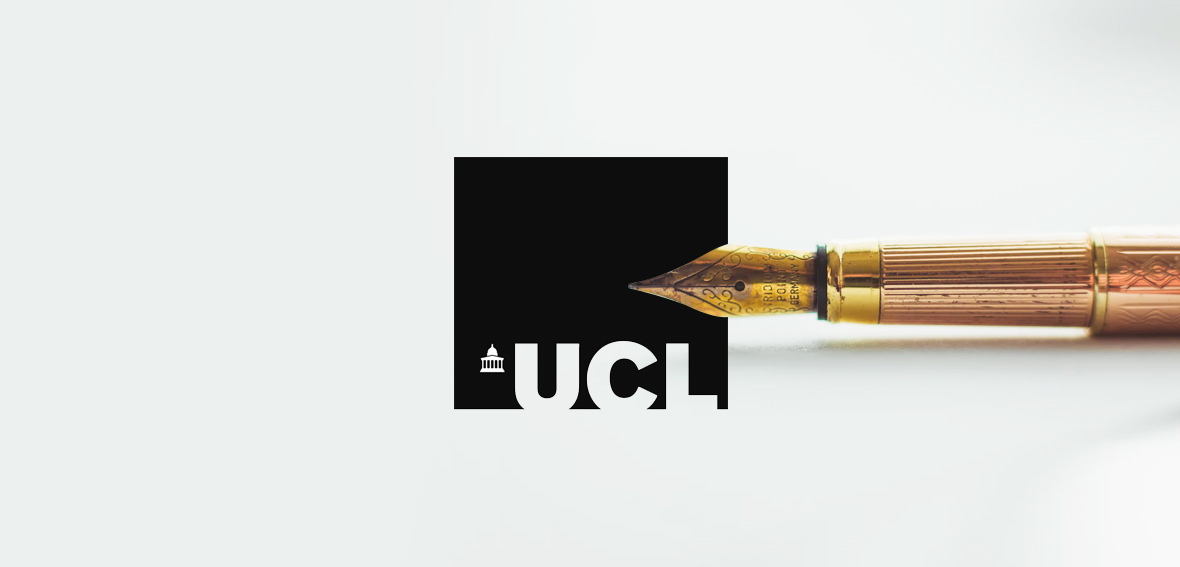Comment écrire son Personal Statement pour l’UCL ?
Pour bien démarrer, n’hésitez pas à vous aider de notre méthodologie. En respectant quelques étapes simples, vous pouvez déterminer facilement ce que vous allez exprimer dans votre Personal Statement. En effet, il vaut mieux éviter de commencer à rédiger sans plan pour éviter de se retrouver dans une impasse.
Pour savoir comment organiser vos idées et créer un discours cohérent, laissez-vous également guider par nos conseils. Rappelez-vous que cette lettre de motivation, cruciale dans votre dossier UCAS, doit montrer au jury d’admission votre personnalité et votre enthousiasme pour le cursus que vous visez. Vous devez lui expliquer les raisons qui vous poussent à postuler.
Grâce au Personal Statement, les examinateurs peuvent vous cerner, mieux comprendre ce qui vous motive et si vous avez les qualités requises pour réussir dans la voie que vous envisagez.
Restez pertinent tout au long de votre essai : tout ce que vous citez doit avoir un rapport avec la discipline que vous voulez étudier. Ainsi, il est recommandé de consacrer 80 % de son papier à son parcours académique et à ses expériences liées quand seulement 20 % doivent être alloués à vos loisirs et activités extra-scolaires. Pour créer des ponts, évoquez vos compétences transversales, c’est-à-dire les compétences que vous avez acquises et qui peuvent être utiles dans le cursus que vous visez.
Des exemples de Personal Statements pour l’UCL
En lettres classiques
I believe it is essential to study classical languages and civilizations because they are the source of our literature, our philosophy, our political systems, our conception of art and even our definition of beauty. The understanding of Latin and Greek allows us to properly read the texts that gave birth to western culture. By knowing these languages, we can become familiar with the thinking of the people of this era in a way not permitted by translations. It also immerses us in history by hearing the voices of those who lived 2000 or 3000 years ago.
This is why I am very excited about studying and perhaps eventually teaching Classics. At my school, studying both Latin and Greek was not an option. However, I was given special permission not only to study both languages, but also to attend further classes with the years above mine. As a result, I’m taking twelve hours of Greek lessons a week in my last year at school. This has helped me widen my vocabulary and understanding of Greek language, literature and history to such an extent that I now tutor younger students on a weekly basis. On occasion, I have also taught full classes of younger students, and once gave a full lecture to the French thought group ‘Poursuivre’.
I often go to see performances of ancient Greek plays I have read, such as Electra, Antigone, Bakkhai or The Oresteia. Experiencing these plays live gives me a much better understanding of the effects -such as catharsis- they can have on a modern audience. In my opinion, the unwavering popularity of Greek theatre demonstrates the importance and timelessness of these works.
In 2015, I completed a two-week internship at the Musée du Louvre, in the Decorative Arts department. Over the course of this internship, I worked on the setting up of an exhibition on the Thracian kings and I translated a Latin inscription. I found this to be a fantastic experience, during which I got to work closely with curators and I learnt to apply my skills and knowledge in a professional setting.
I greatly enjoy translating extracts, especially from Greek. My translations include poems by Sappho, epigrams by Anacreon and extracts from tragedies such as Oedipus Rex. Working on this tragedy was particularly useful to me when I studied modern texts it influenced, such as The Infernal Machine by Cocteau and -as part of a research project- Incendies, a film by Denis Villeneuve inspired by Wadji Mouawad’s play which combines elements from the author’s and a Lebanese resistant’s lives with Greek and Roman mythologies. One of my proudest achievements is translating the complete first book of Lucian of Samosata’s True History, a perfect example of the impact of classical texts on our culture as it was perhaps the first work of science fiction ever written.
My translation skills were singled out by both my Greek teachers in Year 12, who selected me for the Concours Général, France’s most prestigious academic competition, for which an average of 60 students are selected each year. The competition consisted in a four-hour long translation of an unseen text, in my case a fable by Aesop. Preparing and sitting the Concours were hugely enriching and enjoyable experiences which gave me an opportunity to look further into translation and to discover new texts. This was not the first time I took part in a Classics competition, as I also participated in the Concours Arelabor in Year 10, a Latin competition my school ended up winning that year.
I look forward to discussing classical literature, history, philosophy and art with my teachers and fellow students at university as I love talking about people’s ideas and opinions as well as challenging my own.
I strive to be an active promoter of classical studies and have taken part in organizing festivals and activities as well as rallies defending the teaching of ancient languages at the Sorbonne.
Personal Statement de Anonyme
L’introduction de ce Personal Statement rentre directement dans le vif du sujet et donne le point de vue de l’auteur sur les langues et civilisations anciennes. Le lecteur est directement immergé dans sa façon de voir les choses et d’appréhender la discipline.
Le candidat poursuit son texte en décrivant son parcours académique, mettant l’accent sur les options de langues anciennes qu’il a pu choisir pour rester cohérent. En parlant de ses expériences plus personnelles – le fait qu’il va régulièrement au théâtre pour voir jouer les pièces de grands auteurs grecs – il montre toute l’étendue de son intérêt pour la civilisation grecque ancienne.
Son stage au Musée du Louvre témoigne une fois de plus de sa volonté d’approfondir le sujet. Démontrer que sa passion se poursuit largement au-delà des frontières du lycée est une très bonne chose pour réaffirmer au jury d’admission sa profonde motivation.
Enfin, le candidat met en avant ses compétences en traduction et n’hésite pas à citer des auteurs sur lesquels il a travaillé.
En économie
Examination of any quality newspaper will probably demonstrate that more of the headlines address economic problems than any other topic.
The importance and relevance of economic related disciplines to the modern world have led me to want to pursue the study of the subject at a higher level. I am particularly interested in the behaviour of firms and organisations from an economic point of view and I have based my A-level coursework in this field.
During my study, I have come across many real life complexities and while attempting to explain these theories, I have developed a keen interest in analysing and understanding how the world of business is influenced by economics.
I have created an economics revision website for A-level and GCSE students. It is primarily intended to help younger students gain an understanding of core economic principles but has also helped me improve my own computer and presentational skills.
I regularly read newspapers and economic publications to keep up to date with economic developments and I am able to use my mathematical and analytical skills to apply different economic theories to a range of real-life economic situations.
Last year, I took part in an economics and business project called Young Enterprise in which I set up a small company and sold products to students at our school.
I enjoyed the chance to put some of my business economic theory into practice and was able to enhance my management and communication skills. I also gained a distinction in the associated exam.
To gain practical experience in the workplace, I worked for two weeks at a small software company specialising in financial software. I currently have a part time job and this has taught me much about teamwork, responsibility and time management in the workplace.
In my spare time, I enjoy reading, swimming, sketching and solving puzzles and logic problems. I have redesigned and been responsible for the maintenance of my school’s website.
I believe that I will gain a highly marketable set of skills from the study of economics at university. I have found economics to be a challenging and diverse discipline and I am interested in both macro and micro economics. It is this variation of perspective, combined with its real world importance, that makes economics an appealing subject to study at university.
Personal Statement de loftx
Ce Personal Statement a permis à son auteur d’obtenir une offre de l’UCL.
Sa phrase d’accroche est courte mais efficace et impactante. Elle permet d’aborder directement la question de l’économie et des raisons qui poussent le candidat à vouloir étudier cette discipline à l’université.
Le candidat ne mentionne pas vraiment son parcours académique, mais explique en détail tout ce qu’il a accompli et qui présente un rapport avec l’économie. Ainsi, il n’hésite pas à développer les projets auxquels il a pris part et ses expériences professionnelles. Cela lui permet également de mettre en avant quelques compétences qu’il a acquises, notamment en communication et en management.
S’il cite ses loisirs, il ne parvient pas réellement à les valoriser étant donné qu’il ne les relie à aucune qualité ou compétence particulière. Néanmoins, l’étudiant rappelle dans sa conclusion ce qui l’intéresse spécifiquement en économie et pourquoi c’est cette matière qu’il veut approfondir.
Pour conclure sur le Personal Statement pour l’UCL
Le Personal Statement est un document à maîtriser absolument pour pouvoir impressionner le jury d’admission et intégrer l’UCL. Pour vous aider dans ce processus, qui peut être long et difficile, nos experts vous donnent toutes les clés pour réussir. Apprenez à vous valoriser et à structurer votre Personal Statement pour faire mouche !



